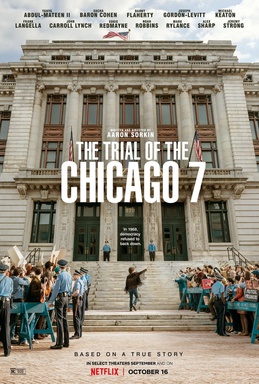Much ado has been made over the past decade about the supposed neglect of Middle America - or more condescendingly, "real America" - by the "coastal elites" and "liberal media". During his election campaigns and presidency, Donald Trump pandered to the beliefs that immigrants were stealing jobs and contributing to a culture of "immoral" progressive values over conservative tradition. And yet, one of the most beautifully empathetic films about the working class struggle was directed by a Chinese woman based in Los Angeles. In "Nomadland", Chloe Zhao takes audiences on a breathtaking journey into America's heartland, exploring the perspective of one woman and her newfound way of life.
Indeed, Fern (Frances McDormand) knows a thing or two about the blue-collar lifestyle. She spent much of her life in a factory town established around US Gypsum, a manufacturer of sheetrock and other construction materials. In the wake of the recession, however, the plant shuts down, leaving the residents of Empire, Nevada bereft. Exacerbated by the death of her husband, a company man, Fern thus finds herself unmoored. Fueled by her innate will to live and pick up the pieces, she then musters the courage to embark on adventure through the American West, living out of her van as a modern nomad.
The power and impact of large corporations is acutely felt through "Nomadland." Apart from US Gypsum, the historically successful Amazon company looms large over this story as one of the main sources of employment for Fern and some of the people she meets along the way. Drawing attention to Amazon and its recognizable signage - as opposed to an unnamed or fictional company - Zhao shrewdly places "Nomadland" within the present day. And if there is anything we learned in 2020, is that America prioritizes the economy and big businesses above all else.
What makes "Nomadland" so special therefore, is how it functions as a reclamation of America from its capitalist ideals and focuses instead on the people whose livelihoods often depend on the production line. Indeed, many of the nomads Fern encounters have been "workhorses" as one man puts it . Brimming with stories about their life experiences, we listen to them around campfires and chance meetings across the vast terrain of Fern's quest.
"Nomadland" isn't the first film to center a narrative on people who have chosen an unconventional lifestyle. But Zhao's simple, yet profound vision outshines them through its relatability. Fern isn't trying to "find herself" or reject modern society and technology like a counterculture hippie. Her desire is to reconnect with other people and restore the pleasures of nature and friendship to her life.
What results is a story that is both personal and universal, told with the heartfelt, plainspoken authenticity of a documentary approach. You don't need to do any research to learn that many of the supporting characters are non-actors and real life nomads. And their naturalism is shared by McDormand in an exceptionally lived-in performance. Effectively acting as a surrogate for Zhao and the audience, her performance is largely reactive, filled with moments of active listening. Completely lacking in vanity, she finds real depths of emotion and feeling.
Aside from the touching humanity on display, what elevates "Nomadland" into the realm of the sublime is the supplemental artistry that Zhao and her craftsmen lend to the narrative. Most notably, Ludovic Einaudi's serene music - taken from his album "Seven Days Walking" - and Joshua James Richards' majestic cinematography, which takes full advantage of natural light to accentuate the preciousness of community and the effortless beauty of the American landscape. "Nomadland" may not convince you to drop everything and become a wandering nomad, nor does it ask you to. But its exhortation to embrace the simple things in spite of the pain of grief and suffering is deeply moving.
| Tweet |






















